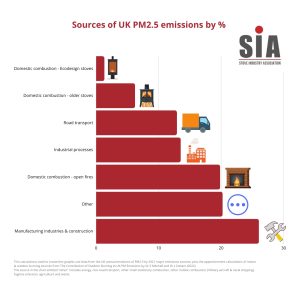UK Government’s Environmental Improvement Plan 2023

Environmental Improvement Plan 2023 UK
The UK Government’s Environmental Improvement Plan 2023 sets out the actions the Government believes we must take to help us restore nature, tackle environmental pollution, and increase the prosperity of our country. Read on to find out what the plan is all about and any impact it might have on you if you own a wood burner or are considering having one fitted.
Are Wood Burning Stoves Banned in the UK?
NO! The guidance set out in the plan does (in part) relate to burning wood at home but don’t panic, the UK Government have confirmed they have no plans to ban wood burning stoves!
The UK Government’s Statement
The statement from the UK Government reads: “We are not considering a ban on domestic burning in England. The UK government recognises that some households are reliant on solid fuel burning as a primary source for heating, hot water and cooking, with this in mind government is not seeking to ban burning.”
What Will Change?
The plan sets out a goal to further improve regulations for burning at home, here are the key points you might be interested to know:
- They will be tightening the limits that new stoves in Smoke Control Areas must meet, reducing the limit from 5g of smoke per hour to a maximum of 3g
- Extending solid fuel legislation to fuels burnt outside
- Implementing measures to drive a shift away from older, more polluting appliances to newer appliances
Our Thoughts
At Hunter Stoves Group we welcome these changes as we believe in supporting a cleaner, more eco friendly approach to domestic burning which will benefit both people and planet. Our ongoing commitment to continuous improvement means that a large number of our wood stoves already meet (and in many cases far exceed!) this new target with most of our range certified as Clearskies 4 or Clearskies 5 (the highest clean air rating awarded to Stoves). Our Parkray Aspect Range are all certified as ClearSkies Rating 5 – the top rating for low emissions.
Sources of PM2
In addition, seeking to extend solid fuel legislation to outdoor fuels is consistent with messaging from the Stove Industry Alliance, which has for some time emphasised the issue of outdoor burning and the significance of precise PM emissions source attribution.
In the midst of numerous global challenges that have resulted in many families experiencing fuel poverty, wood-burning stoves have become an essential resource for survival. It is both misguided and foolish for specific newspapers to manipulate data to unfairly criticise a heat source that has helped countless individuals. We acknowledge the importance of improving outdated open fires and wood-burning stoves to reduce PM2.5 emissions. Nevertheless, we urge you to carefully examine the data that indicates modern, highly efficient stoves are a significant aspect of the solution (as can be seen above in the infographic created by the Stove Industry Alliance)
Hunter Stoves Group will continue to ensure that consumers are supported with information to help them transition from open fires and older stoves to modern appliances that meet these new emissions standards; stoves that provide a very low carbon, low emission, and cost-effective means of keeping homes and families warm using low carbon, renewable, and sustainable fuel.
View our range of Eco 2022 Approved Wood burning Stoves here.


